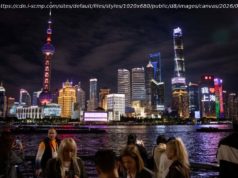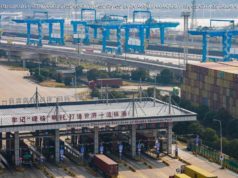New rules would tighten Chinese firms’ overseas capital use, according to Xu Chen, chairman of the US chapter of the China General Chamber of Commerce
China’s foreign exchange regulator will make it more difficult for property developers operating in the US to rely on a controversial investor visa programme to fund their projects, a Chinese industry association said. Restrictions aimed at controlling how Chinese companies and individuals deploy capital overseas will make it difficult for them to invest in businesses not aligned with domestic consumer demand, such as pharmaceuticals, and prioritise industries for the government including advanced manufacturing, Xu Chen, Chairman of the US chapter of the China General Chamber of Commerce (CGCC) , told reporters. “From July, [China’s State Administration of Foreign Exchange, or SAFE] will continue to further tighten capital outflow from China and this is very important to the EB-5 program, ” Xu said. “It’s reasonable for China to tighten restrictions on the capital outflow into [the real estate] market” because Chinese investment in this sector had surged too quickly. “In the meantime, China’s central government, central bank and also the foreign exchange control authorities are encouraging the capital outflow in the market closely related to the consumption demand in China’s market.” Sometimes referred to as the “golden visa programme”, the HB-5 programme allows foreigners investing as little as US$500,000 in a qualifying real estate project to apply for permanent residency. Qualification for projects approved for the $500,000 minimum investment level is limited to those in areas of high unemployment. Cases of fraud in EB-5 projects and questions over how some projects in high-rent areas received their qualifications prompted US senators, including California’s Dianne Feinstein and Iowa’s Chuck Grassley, to call for the elimination of the programme. News that a property developer owned by the family of US President Donald Trump’s son-in-law, Jared Kushner, has raised funds for a high-rise project near Manhattan through the EB-5 programme increased public scrutiny. That attention peaked when Kushner’s sister touted her family’s ties to Trump to attract more investors during presentations in China last month. Investors from mainland China have accounted for more than three quarters of the EB-5 visas issued in recent years, particularly since the financial crisis of 2008, when more traditional forms of credit for real estate projects dried up. CGCC’s Xu said banks in Hong Kong and Macau will step up supervision of funds remitted to the US to ensure they don’ t violate SAFE’s policies. Moreover, he said, the Trump administration’s focus on restricting immigration may further restrict the ability of banks and other intermediaries involved in pooling EB-5 investments for property developers. Xu’s comments about China’s control over investment outflows highlighted insights from a CGCC survey of its US membership, particularly the degree to which this is affecting their investment plans. “The recent tightening of outbound investment oversight by the Chinese government has affected 54 per cent of the surveyed companies’ investment plans, ” according to the CGCC’s just-published report of survey results. “Among these affected companies, 80 per cent say the change has increased the time for getting approvals, and 78 per cent say it has made it more difficult to obtain approvals.” China’s capital outflow controls appear to be a more pressing issue for the CGCC’s US chapter members than restrictions they face in the US. Sixty-five per cent of the survey’s respondents “consider the implementation of US policies and rules to be unbiased”, the survey report said.






